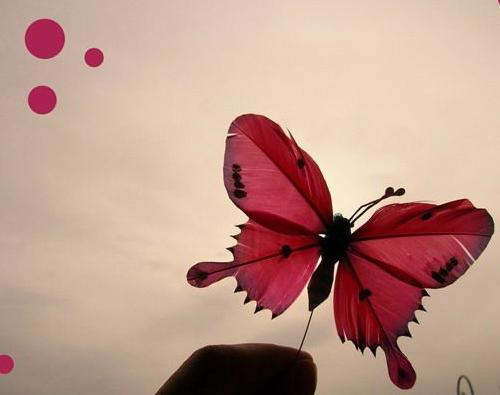神秘内容 Loading...
 (来源:EnglishCN.com) (来源:EnglishCN.com)
Though most of us spend a lifetime pursuing happiness, new research is showing that that goal may be largely out of our control. Two new studies this month add to a growing body of evidence that factors like genes and age may impact our general well-being more than our best day-to-day attempts at joy.
In one study, researchers at the University of Edinburgh suggest that genes account for about 50% of the variation in people's levels of happiness - the underlying determinant being genetically determined personality traits, like "being sociable, active, stable, hardworking and conscientious," says co-author Timothy Bates. What's more, says Bates, these happiness traits generally come as a package, so that if you have one you're likely to have them all.
Bates and his Edinburgh colleagues drew their conclusions after looking at survey data of 973 pairs of adult twins. They found that, on average, a pair of identical twins shared more personality traits than a pair of non-identical twins. And when asked how happy they were, the identical twin pairs responded much more similarly than other twins, suggesting that both happiness and personality have a strong genetic component. The study, published in Psychological Science, went one step further: it suggested that personality and happiness do not merely coexist, but that in fact innate personality traits cause happiness. Twins who had similar scores in key traits - extroversion, calmness and conscientiousness, for example - had similar happiness scores; once those traits were accounted for, however, the similarity in twins' happiness scores disappeared.
Another larger study, released in January ahead of its publication in Social Science & Medicine this month, shows that whatever people's individual happiness levels, we all tend to fall into a larger, cross-cultural and global pattern of joy. According to survey data representing 2 million people in more than 70 countries, happiness typically follows a U-shaped curve: among people in their mid-40s and younger, happiness trends downward with age, then climbs back up among older people. (That shift doesn't necessarily hold for the very old with severe health problems.) Across the world, people in their 40s generally claim to be less happy than those who are younger or older, and the global happiness nadir appears to hit somewhere around 44.
What happens at 44? Lots of things, but none that can be pinned down as the root cause of unhappiness. It's not anxiety from the kids, for starters. Even among the childless, those in midlife reported lower life satisfaction than the young or old, says study co-author Andrew Oswald, an economics professor at the University of Warwick in Britain. Other things that didn't alter the happiness curve: income, marital status or education. "You can adjust for 100 things and it doesn't go away," Oswald says. He and co-author David Blanchflower, an economist at Dartmouth College in New Hampshire, also adjusted their results for cohort effects: their data spanned more than 30 years, making them confident that whatever makes people miserable about being middle-aged, it isn't related, say, to being born in the year 1960 and growing up with that generation's particular set of experiences.
At first glance, the new studies may appear at odds with some previous ones, largely because in happiness research, a lot depends on how you ask the question. Oswald and Blanchflower looked at responses to a sweeping, general question: "Taken all together, how would you say things are these days - would you say that you are very happy, pretty happy or not too happy?" (The wording changes slightly depending on where the survey was conducted, but the question is essentially the same.) In a 2001 study, Susan Charles at University of California, Irvine, measured something slightly different: changes in positive affect, or positive emotions, versus negative affect over more than 25 years. Charles found that positive affect stayed roughly stable through young adulthood and midlife, falling off a little in older age; negative affect, meanwhile, fell consistently with age.
Charles thinks that feelings like angst, disgust and anger may fade because as we get older we learn to care less about what others think of us, or perhaps because we become more adept at avoiding situations we don't like. (The Edinburgh researchers, too, found that older study participants scored lower than younger ones on scales of neuroticism - worry and nervousness - and higher on scales of agreeableness.) Oswald chalks up the midlife dip in happiness shown in his study to people "letting go of impossible aspirations" - first, there's the pain of fading youth and the realization that we may never accomplish all that we had dreamed, then the contentment we gain later in life through acceptance and self-awareness. "When you're young you can't do that," Oswald says. |

